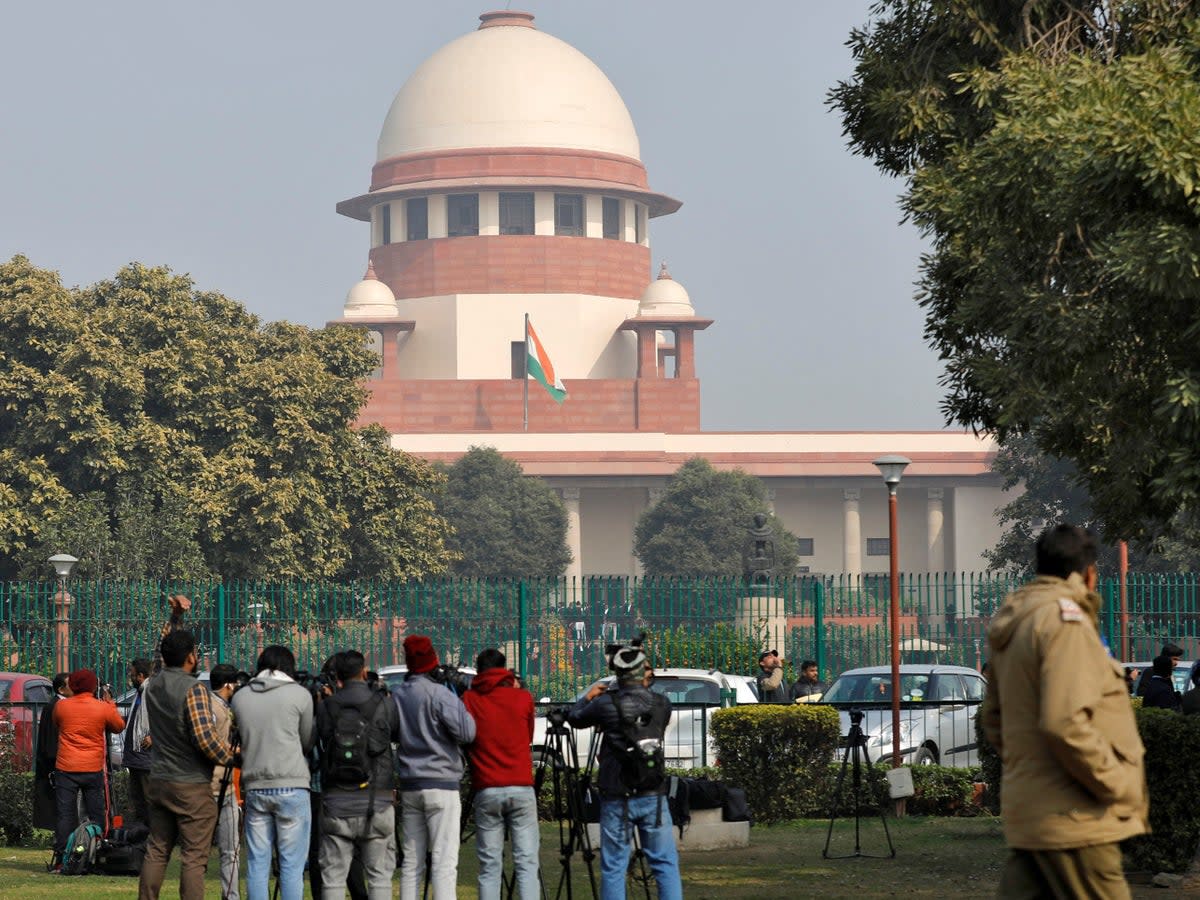TV anchors have a ‘duty’ not to spread hate speech, says India’s top court

Hate speech in India is tantamount to killing people in many different ways and it is the “duty” of the country’s television anchors to stop it in electronic media, observed the country’s Supreme Court on Thursday.
India has witnessed a significant and worrying surge of the phenomenon in recent years and a bench of the top court, comprising justices KM Joseph and Hrishikesh Roy, on Wednesday also called out the federal government for being a “mute witness”.
It heard a batch of 11 petitions that sought directions to regulate hate speech and asked if the law had provisions to do so.
“Role of anchor is very important. These speeches on mainstream media or social media are unregulated. Mainstream TV channels still hold sway,” Justice Joseph remarked.
“The role of anchor is critical. It is their duty to see that hate speech doesn’t happen.”
“What are the provisions of law which relates to hate speech in India?” Mr Joseph asked.
India does not have a law specifically catering to hate speech. But the country’s now-defunct law commission, an advisory government body that used to advise the government on legal reforms, had said in 2017 that “select forms of speech” were “an exception to freedom of speech”.
One of the petitions was against a show titled “UPSC Jihad” aired by Hindu-nationalist Hindi language news channel Sudarshan News. The Union Public Service Commission (UPSC) is the government’s recruitment agency for its civil servants.
In a 2020 affidavit filed in the top court, the federal information and broadcasting ministry said the show, which claimed Muslims were conspiring to “infiltrate” the civil services in India, was “not in good taste” and had a likelihood to “promote communal attitudes”.
Critics of the current government have accused mainstream television channels of providing platforms to extremist views during their prime-time debates.
Instances of hate speech have increased steadily in the country, with a significant chunk of it targeted at India’s religious and gender minorities. Critics have said the extremist views favour the Hindu-nationalist ruling party in power and have dubbed mainstream channels “godi” or “lapdog” media.
In a recent instance, derogatory statements made against prophet Muhammad by a former member of prime minister Narendra Modi’s Bharatiya Janata Party (BJP) on right-wing news channel Times Now sparked a diplomatic row between India and Islamic countries.
Justice Joseph in his oral observation stated that while freedom of speech is important, hate speech cannot be allowed unregulated on television.
“One channel was fined heavily in UK,” he said, referring to another right-wing channel, Republic TV, which was slapped with a £20,000 fine by British regulator Ofcom for broadcasting hate speech about Pakistan.
“We don’t have that here. They are not being dealt with firmly. They can be taken off air, fined, if such sanction comes,” he said.
He explained that hate speech is “layered” and compared it to “killing someone”.
“You can do it in multiple ways, slowly or otherwise. They keep us hooked based on certain convictions.”
“We should have a proper legal framework unless we will have framework people will continue... if it is hate speech on which we are feeding on, where is our nation headed,” he observed.
The court has asked the federal government to file a counter affidavit with inputs from various states. The matter will be taken up by the court again on 23 November.


